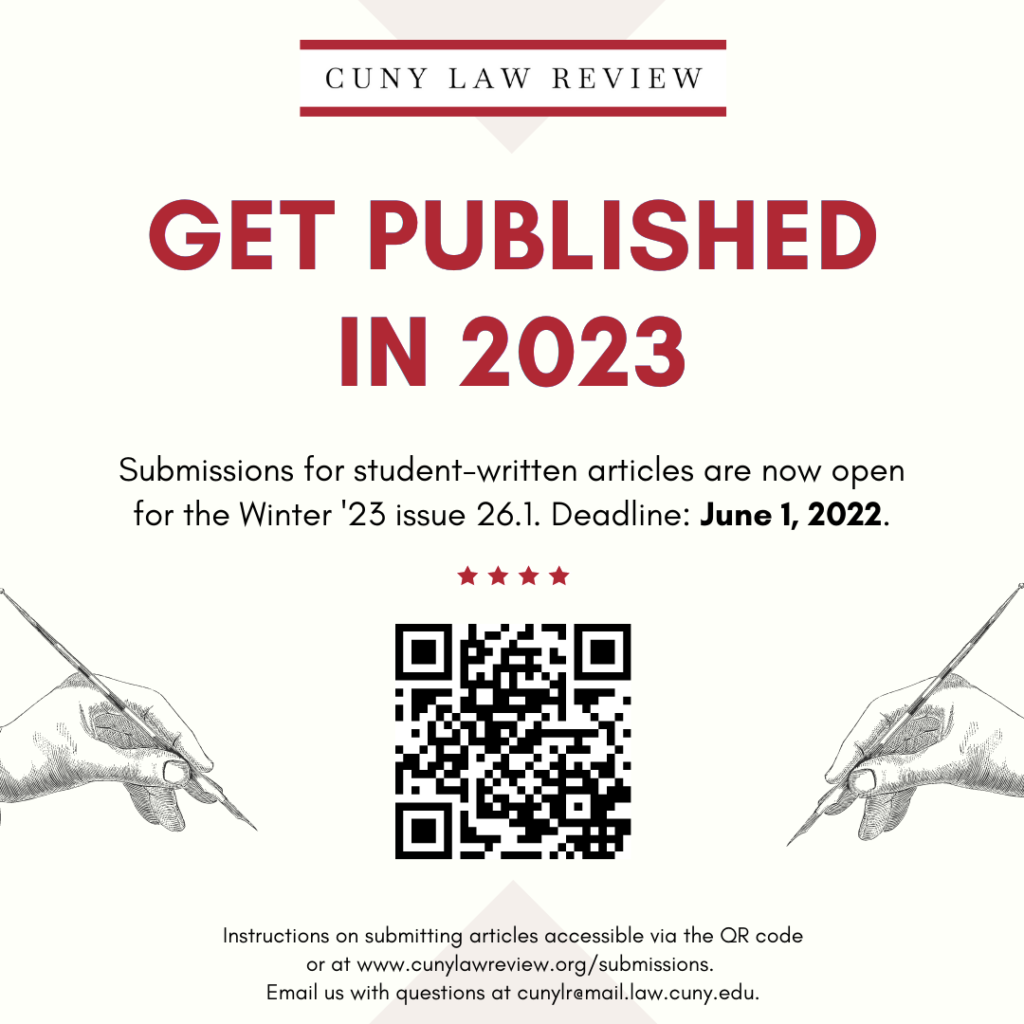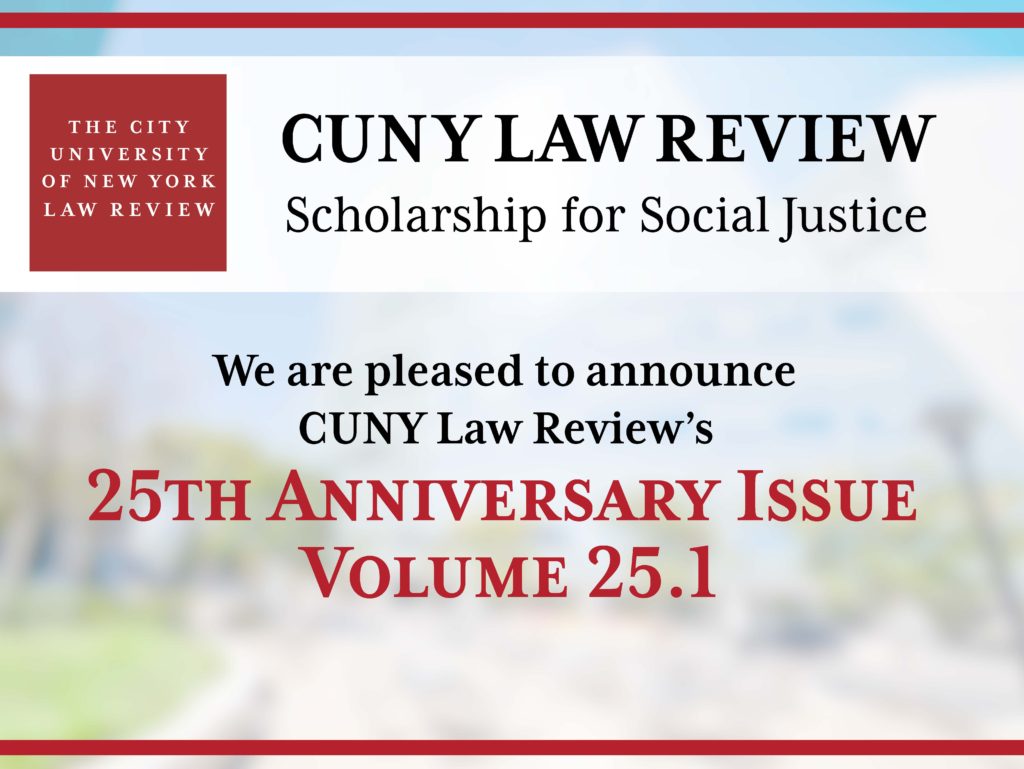Yesterday, the Supreme Court of the United States’ ruling on Dobbs v. Jackson Women’s Health Organization dismantled the constitutional foundation giving pregnant people the right to choose whether or not to give birth. The decision allows states to ban abortion and criminalize anyone who assists a pregnant person in getting an abortion. 26 states have laws and amendments in place that ban or have a near-total ban on abortion following this decision.
The City University of New York Law Review is committed to addressing the consequences of structural oppression, and to challenging these structures themselves. As such, we denounce the Supreme Court’s holding undoing 50 years of legal precedent that millions have relied on to plan their futures and families. The decision will have far-reaching and devastating legal and practical ramifications on those who can give birth, particularly the poor, people of color, and trans people. Justice Thomas’ concurrence called for the Supreme Court to “reconsider” its past rulings on contraception access, same-sex marriage, and consensual sex in same-sex relations, which implicates consequential constitutional privacy rights. This decision’s reasoning was not grounded in notions of liberty or equality but in a white supremacist, sexist historical period where women, Black people and other people of color, the poor, and queer people had inferior, or no rights at all.
Continue reading →


